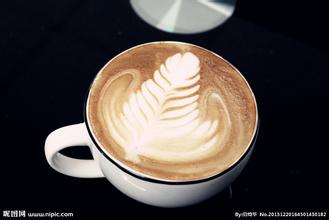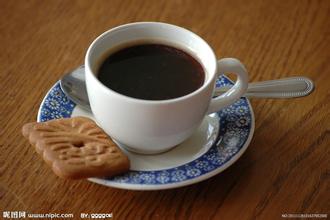Introduction to the overall soft flavor and taste characteristics of Salvadoran coffee manor
Frente Farabundo Mart í parala Liberaci ó n Nacional, the ruling party. In October 1980, the "Farabundo Marty people's Liberation Army", the "National Resistance Forces", the "people's Revolutionary Army", the Central American Labor Revolutionary Party and the Communist Party of El Salvador jointly formed an armed front against the government. In January 1992, the Front signed a Peace Agreement with the Government and became a legitimate political party in December. In June 1995, all parties within the Front uniformly formed the "Farabundo Marti National Liberation Front" party. Three elections were lost in 1994, 1999 and 2004, and the party's candidate Funes won the presidential election in March. By January 2016, the party had about 120000 members.
The National Republican Alliance (Alianza Republicana Nacionalista), the main opposition party. It was founded by Roberto D'Abuisson in September 1981 and officially registered in January 1982. He was in power from 1989 to 2009. [1]
Political dignitaries
Sanchez Salem
Sanchez Salem is president of El Salvador. He was born on June 18, 1944 in Xattepec, El Salvador. After graduating from Alberto normal School, he taught in a primary school in his hometown for 10 years. He participated in the creation of the first left-wing armed force in El Salvador, the Farabondo Marti people's Liberation Forces, in 1970 and became general secretary of the organization in April 1983. Since then, the organization has joined forces with other left-wing political and military groups in Saudi Arabia to form the Marty Front. In 1992, he participated in the signing of the Peace Agreement that marked the end of the civil war in Saudi Arabia. He served as General Coordinator of the Marty Front twice from 1994 to 1997 and from 2001 to 2004. He was elected for three consecutive terms from 2000 to 2009, and served as the leader of the parliamentary caucus of the Marty Front from 2006 to 2008. Served as Vice President and Minister of Education from June 2009 to June 2014. In March 2014, he was elected President as a candidate of the Marty Front and took office on 1 June for a five-year term. [6]
Economic editor
General situation
El Salvador's economy is dominated by agriculture and its industrial base is weak. Promote the economy since 1992
San Salvador
San Salvador
With liberalization and reform, inflation has been curbed and the economy has developed rapidly. From 1990 to 1997, the economy grew at an average annual rate of 5.3%. Since 2001, the policy of economic dollarization has been implemented, allowing the legal circulation of US dollars, the fixed exchange rate between the local currency and the US dollar, and overall macroeconomic stability. In 2010, imports were US $8.189 billion and external debt was US $11.07 billion. In 2011, GDP was US $22.6 billion, an increase of 1.3% over 2010, with a per capita GDP of US $3722, unemployment rate of 7% and inflation rate of 5.1%. El Salvador boutique coffee is concentrated in the volcanic rock producing areas of Santa Ana in the west and Charantan fruit in the northwest. In recent years, the top 10 cup tests are almost entirely from these two producing areas, with an altitude of about 9-1500 meters, mainly bourbon (68%). Followed by Pacas (29 per cent), mixed-race Pakamara, Durai and Kaddura accounted for only 3 per cent.
The coffee harvest lasts from November to March. The fresh fruit of coffee is picked by hand.
On the whole, Salvadoran coffee inherits the mild quality of Sino-American coffee, which is soft, slightly sour and has beautiful sweetness. At the same time, it also has its own characteristics: the aromatic taste is slightly sour and very soft; it is pure without miscellaneous flavor, and the taste balance is excellent; the smooth feeling like cream chocolate is impressive; the dense feeling of coffee in the mouth gives the coffee a deep taste and a long finish in the savanna climate. The plain area belongs to the tropical rain forest climate and the mountain area belongs to the subtropical forest climate. The average annual temperature is 25-28 ℃. The annual precipitation is more than 1800 mm in mountain areas and about 1000 mm in coastal areas. The rainy season is from May to October.
Don't underestimate El Salvador's coffee production. In its heyday, it was once the fourth largest coffee producer in the world, but decades of civil war almost dragged down the coffee industry. fortunately, the war has stopped in recent years, and the coffee industry has come back to life. The only benefit that the civil war brought to the Salvadoran country was that the farmers' fields were barren and failed to catch up with the most popular Katimo exposure train in the past two decades, thus preserving the ancient varieties of bourbon and Tibica, that is to say, El Salvador still uses the most traditional shade planting, which is of positive significance to the aroma of coffee. In 2005, the Salvadoran mixed-race Pacamara boasted in coe, which confused many international cup testers and did not know how to grade it. It was never expected that this hybrid bean not only broke the mellow boundary of coffee, but also expanded the visibility of Salvadoran coffee. El Salvador's coffee producing area:
Like Guatemala and Costa Rica, coffee in El Salvador is graded according to altitude, and the higher the altitude, the better the coffee. The best brand is Pipil, which is what the Aztec-Mayan (Aztec-Mayan) called coffee, which has been recognized by the American Organic Certification Society (OrganicCertifiedlnstituteofAmerica). Another rare coffee is Pacamara, a hybrid of Pacas and Maragogype. The best place to produce the coffee is in western El Salvador, adjacent to SantaAna, which is close to the border with Guatemala. Parkmara coffee is full of grains, but not very fragrant.
Features of Salvadoran coffee:
Coffee from El Salvador is a specialty of Central America, where it is light, fragrant, pure and slightly sour.
Flavor: balanced taste and good texture
Recommended baking method: moderate to deep, with a variety of uses
★: general
Market for Salvadoran coffee:
The best Salvadoran coffee is exported from January to March, and 35% of the extra hard beans are exported to Germany.
In 1990, the government of El Salvador privatized part of the coffee export industry, hoping to increase the income rate of coffee in the export market.

Important Notice :
前街咖啡 FrontStreet Coffee has moved to new addredd:
FrontStreet Coffee Address: 315,Donghua East Road,GuangZhou
Tel:020 38364473
- Prev

Coarse and fruity flavor of Cuba's Crystal Mountain Coffee Manor flavor and taste characteristics of fine coffee beans
Cuba's coastline is about 6000 kilometers long, most of which are flat, with mountains in the east and middle and hills in the west, and most of the territory has a savanna climate. [6] in addition to Cuba, it also includes more than 1600 surrounding islands of different sizes. The islands consist of five islands: Savannah, Camag ü ey, Colorados, Queen's Garden and Canare.
- Next

Introduction to the flavor and taste characteristics of the manor producing area in Nicaragua's boutique coffee bean producing area
On 18 August 1986, the Constitution of Nicaragua was adopted by the National Assembly and entered into force in January 1987. The Constitution was amended three times in February 1995, January 2000 and December 2004. According to the Constitution, Nepal is an independent, free, autonomous, unified and indivisible country; the central authority of the state is composed of the President, the National Assembly, the Supreme Court and the Supreme Election Commission; and the President and members are elected.
Related
- Detailed explanation of Jadeite planting Land in Panamanian Jadeite Manor introduction to the grading system of Jadeite competitive bidding, Red bid, Green bid and Rose Summer
- Story of Coffee planting in Brenka region of Costa Rica Stonehenge Manor anaerobic heavy honey treatment of flavor mouth
- What's on the barrel of Blue Mountain Coffee beans?
- Can American coffee also pull flowers? How to use hot American style to pull out a good-looking pattern?
- Can you make a cold extract with coffee beans? What is the right proportion for cold-extracted coffee formula?
- Indonesian PWN Gold Mandrine Coffee Origin Features Flavor How to Chong? Mandolin coffee is American.
- A brief introduction to the flavor characteristics of Brazilian yellow bourbon coffee beans
- What is the effect of different water quality on the flavor of cold-extracted coffee? What kind of water is best for brewing coffee?
- Why do you think of Rose Summer whenever you mention Panamanian coffee?
- Introduction to the characteristics of authentic blue mountain coffee bean producing areas? What is the CIB Coffee Authority in Jamaica?

